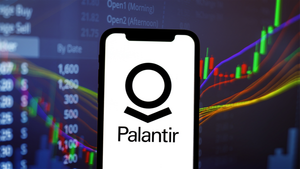- Completion of preclinical studies support potential to advance PXL770 into Phase 2 development for ADPKD
- Compelling preclinical efficacy data confirm strategic focus for PXL770 in rare metabolic diseases
POXEL SA (Euronext : POXEL - FR0012432516), a clinical stage biopharmaceutical company developing innovative treatments for chronic serious diseases with metabolic pathophysiology, including non-alcoholic steatohepatitis (NASH) and rare metabolic disorders, today announced that the U.S. Food and Drug Administration (FDA) has granted Orphan Drug Designation (ODD) to PXL770 for the treatment of patients with autosomal-dominant polycystic kidney disease (ADPKD). PXL770 is a novel, first-in-class direct adenosine monophosphate-activated protein kinase (AMPK) activator – and is also a Phase 2 ready ADPKD asset, subject to additional financing.
Thomas Kuhn, CEO of Poxel, commented: “As we have decided to focus PXL770 development efforts exclusively in rare diseases on the basis of our promising data, this Orphan Drug Designation for PXL770 in ADPKD further strengthens the value of this Phase 2 ready program. ADPKD is an inherited form of chronic kidney disease where the unmet need is high, with only one approved drug which is associated with significant safety-tolerability challenges. The pathophysiology of ADPKD involves altered kidney metabolism and there is a strong rationale for AMPK activation as a therapeutic approach. This summer, we completed the preclinical assessment of PXL770 in ADPKD demonstrating compelling benefits of strong suppression of cyst formation in vitro and in vivo and presented these results at recent scientific meetings. We have initiated development program planning and further regulatory interactions.”
Poxel recently announced that PXL770 development will focus exclusively on rare diseases, starting with adrenoleukodystrophy (ALD) and ADPKD, driven by promising data which showed strong potential in multiple rare metabolic indications.
Preclinical results for PXL770 in ADPKD were presented in oral sessions at two recent scientific meetings:
- 59th European Renal Association Congress; Paris May 19-22, 2022 (Pascale Gluais, Director Pharmacology, Poxel)
- 5th European Workshop on AMPK and AMPK-related kinases; Glasgow September 27-29 (Sophie Bozec, Senior VP, R&D Pharmacology and Scientific Communication, Poxel)
Orphan Drug Designation (ODD)
ODD is granted by the FDA to novel therapeutics for diseases or conditions that affect fewer than 200,000 individuals in the U.S. Orphan Drug Designation1 gives a company a potential seven-year window of exclusive marketing rights following FDA approval, along with a reduction in certain application fees, and tax credits for expenses related to qualified clinical trials conducted after orphan designation is received.
About ADPKD
Autosomal dominant polycystic kidney disease (ADPKD) is the fourth leading cause of renal failure and the most common inherited cause of kidney disease. In ADPKD, fluid-filled cysts develop and enlarge in both kidneys, eventually leading to kidney failure. Other complications and clinical manifestations include: abdominal pain, urinary symptoms, liver cysts and cardiovascular disorders. More than 50 percent of people with ADPKD will develop kidney failure by age 50. Once a person has kidney failure, dialysis or a transplant are the only options.
About PXL770
PXL770 is a first-in-class direct adenosine monophosphate-activated protein kinase (AMPK) activator. AMPK is a central regulator of multiple metabolic pathways leading to the control of lipid metabolism, glucose homeostasis and inflammation. Based on its central metabolic role, targeting AMPK offers the opportunity to pursue a wide range of indications to treat chronic metabolic diseases.
About Poxel SA
Poxel is a clinical stage biopharmaceutical company developing innovative treatments for chronic serious diseases with metabolic pathophysiology, including non-alcoholic steatohepatitis (NASH) and rare disorders. For the treatment of NASH, PXL065 (deuterium-stabilized R-pioglitazone) met its primary endpoint in a streamlined Phase 2 trial (DESTINY-1). In rare diseases, development of PXL770, a first-in-class direct adenosine monophosphate-activated protein kinase (AMPK) activator, is focused on the treatment of adrenoleukodystrophy (ALD) and autosomal dominant polycystic kidney disease (ADPKD). TWYMEEG® (Imeglimin), Poxel’s first-in-class product that targets mitochondrial dysfunction, is now marketed for the treatment of type 2 diabetes in Japan by Sumitomo Pharma and Poxel expects to receive royalties and sales-based payments. Poxel has a strategic partnership with Sumitomo Pharma for Imeglimin in Japan, China, and eleven other Asian countries. Listed on Euronext Paris, Poxel is headquartered in Lyon, France, and has subsidiaries in Boston, MA, and Tokyo, Japan.
For more information, please visit: www.poxelpharma.com
All statements other than statements of historical fact included in this press release about future events are subject to (i) change without notice and (ii) factors beyond the Company’s control. These statements may include, without limitation, any statements preceded by, followed by or including words such as “target,” “believe,” “expect,” “aim,” “intend,” “may,” “anticipate,” “estimate,” “plan,” “project,” “will,” “can have,” “likely,” “should,” “would,” “could” and other words and terms of similar meaning or the negative thereof. Forward-looking statements are subject to inherent risks and uncertainties beyond the Company’s control that could cause the Company’s actual results or performance to be materially different from the expected results or performance expressed or implied by such forward-looking statements. The Company does not endorse or is not otherwise responsible for the content of external hyperlinks referred to in this press release.
________________________________
1 For more information on Orphan Drug Designation, see : https://www.fda.gov/industry/developing-products-rare-diseases-conditions/designating-orphan-product-drugs-and-biological-products
View source version on businesswire.com: https://www.businesswire.com/news/home/20221002005044/en/
Contacts
Investor relations / Media
Aurélie Bozza
Investor Relations & Communication Senior Director
aurelie.bozza@poxelpharma.com
+33 6 99 81 08 36
Elizabeth Woo
Senior Vice President, Investor Relations & Communication
elizabeth.woo@poxelpharma.com
NewCap
Emmanuel Huynh or Arthur Rouillé
poxel@newcap.eu
+33 1 44 71 94 94





